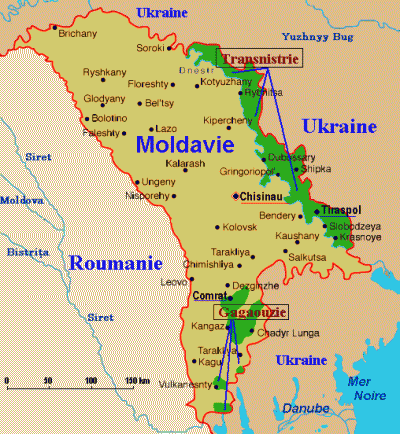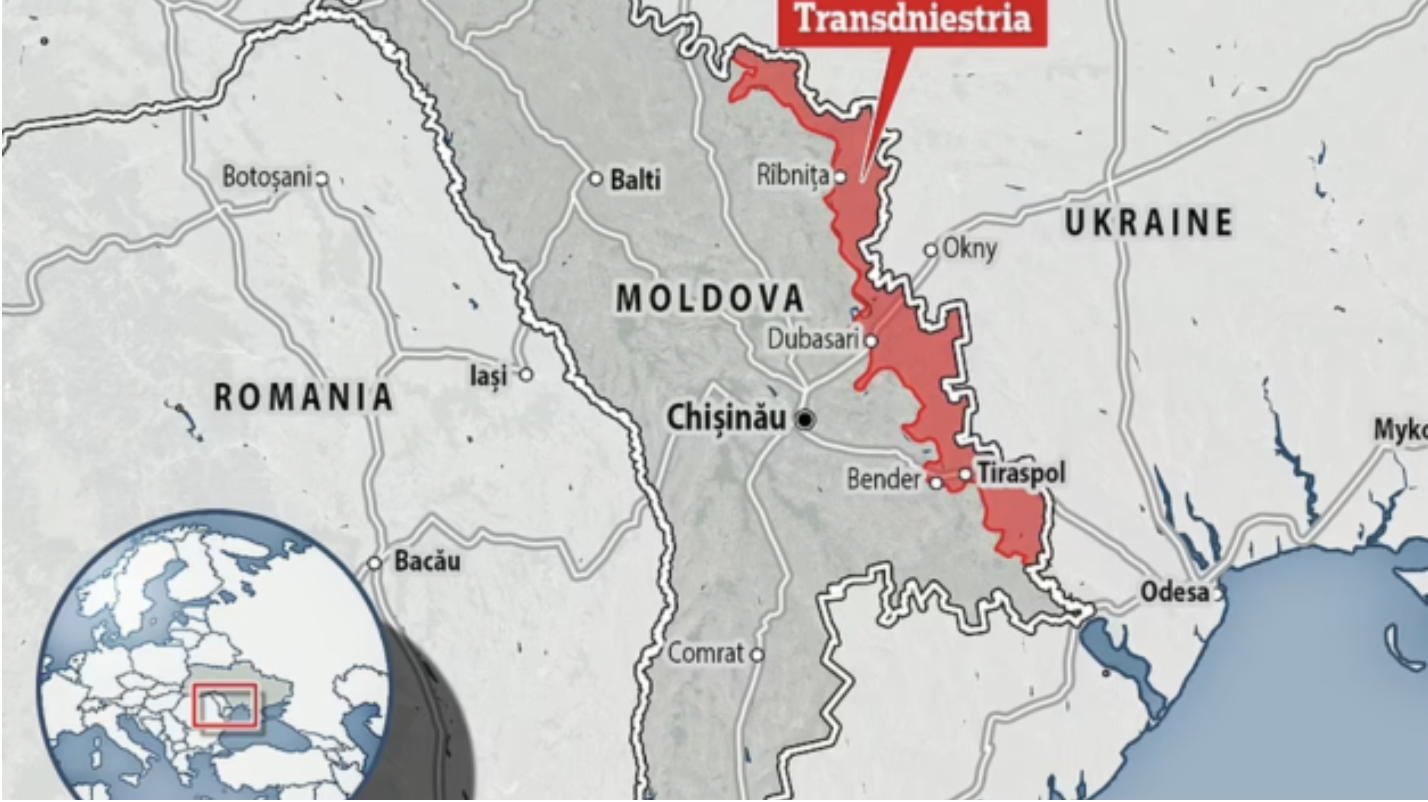Moldova might become another conflict zone and the “next Ukraine”

All Global Research articles can be read in 51 languages by activating the Translate Website button below the author’s name.
To receive Global Research’s Daily Newsletter (selected articles), click here.
Follow us on Instagram and Twitter and subscribe to our Telegram Channel. Feel free to repost and share widely Global Research articles.
***
There is a strong possibility of Moldova becoming a conflict hotspot so that the West can maintain maximum pressure on Russia’s periphery and bog the country down in more war. This comes as Russian Foreign Minister Sergei Lavrov told the media that the West now has its “eyes” on Moldova and that Moldovan President Maia Sandu is ready to act on any instructions that she receives.
The possibility of Moldova becoming a major European flashpoint has always existed because the Transnistrian conflict has been frozen since July 1992.
If Moldova, in the eyes of officials, becomes even more pro-Western and integrated into Romania, the more likely is that Transnistrians will resolve their right for sovereignty by force. This would turn Moldova into the “next Ukraine”, which will surely see indirect international intervention, and perhaps a direct Russian intervention. Moscow has the ability to support Transnistria, including with financial, diplomatic and military methods to resolve the conflict, and will not hesitate to do so if new provocations emanate from Moldova.
Transnistria, where 60% of the inhabitants are Russian and Ukrainian, had sought to secede from Moldova even before the collapse of the Soviet Union in 1991, fearing that Moldova would join Romania in the face of post-communist nationalism. In 1992, after the Moldovan government failed to resolve the issue by force, Transnistria became an unrecognised territory outside of Chisinau’s control.
Peace in the Transnistrian conflict zone is maintained by a joint peacekeeping force, consisting of 402 Russian servicemen, 492 Transnistrian servicemen and 355 Moldovan servicemen, as well as ten military observers from Ukraine. Peacekeeping forces serve at 15 fixed checkpoints and other checkpoints located in key areas of the security zone.
It is recalled that in late December, Moldova’s Ministry of Defence had to deny claims about a Russian missile being launched in the direction of their country. Several Moldovan media outlets reported that Ukrainian Telegram channels made claims about an alleged Russian missile heading towards Moldova.
“Amid information appearing in the media about a missile that is believed to have flown towards Moldova due to shelling in Ukraine this morning , we announce that the air surveillance systems of the National Army did not record illegal flights in the airspace of the republic,” noted the press service of Moldova’s defence ministry.
This scenario was concocted as part of Kiev’s efforts to draw more countries into the conflict. Moldova is particularly vulnerable considering it is a poor country contending with an internal ideological struggle between Western liberalism and Moldovan sovereignty. Ever since Sandu came to power, Moldova has been integrating deeper into NATO, the European Union and Romania.
“First of all, because they were able to put a president at the head of the country through quite specific methods, far from being freely democratic, who, quite simply, is willing to enter NATO, has Romanian citizenship, is ready to unite with Romania and, in general, is ready for almost anything,” Lavrov explained on February 2.
“I won’t go into details, but this is one of the next countries that the West wants to turn anti-Russia,” Lavrov added.
For his part, Moldovan Foreign Minister Nicu Popescu denied Lavrov’s charges, claiming that
“We categorically reject such insinuations. Such a tone is entirely out of place in a proper relationship between two states. And at the same time, it is absolutely clear what the population of the Republic of Moldova wants. The citizens of the Republic of Moldova want a democratic, prosperous, European country, where corruption is eliminated and which joins the European Union.”
In the same statement, Popescu denied his country’s obvious and open anti-Russia actions, but also claimed that the ruling government is fighting corruption. However, despite Sandu coming to power in 2020, Statista’s “Corruption perception index score of Moldova from 2012 to 2022” found that the “composite indicator that includes data on the perception of corruption in areas such as bribery of public officials, kickbacks in public procurement, embezzlement of state funds, and effectiveness of governments’ anti-corruption efforts” actually worsened in 2021 and 2022.
Therefore, despite the claims by Popescu that Sandu and her government are dealing with corruption, Moldovan perceptions is that corruption has actually deepened under the current pro-Western government.
In fact, even more damning for Popescu’s claims is that on February 3, WatchDog MD announced that a recent survey in Moldova found Russian President Vladimir Putin to have the highest approval rating out of all foreign leaders in the country, with 38% of the vote.
This was followed by Romanian leader Klaus Iohannis in second place with 36.6%, Ukrainian President Volodymyr Zelensky with 35.3%, Belarusian President Alexander Lukashenko with 35%, French President Emmanuel Macron with 34%, Turkish President Recep Tayyip Erdogan with 30.3%, US President Joe Biden with 25.2%, and Chinese President Xi Jinping with 22%.
In this way, the actions of the Moldovan government are actually in opposition to most citizens, despite what Popescu might claim. Although they might deny Lavrov’s charges, it cannot be overlooked that the Moldovan Deputy Prime Minister for Reintegration met with the US ambassador in Chisinau on February 3 to discuss the situation in Transnistria. It can be safely assumed that Washington’s interest is not for a successful mediation between Moldova and separatists in Transnistria, but rather to try and create a new flashpoint to distract and waste Moscow’s attention and resources.
Ahmed Adel, Cairo-based geopolitics and political economy researcher


